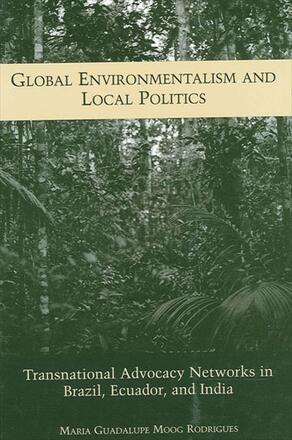
Global Environmentalism and Local Politics
Transnational Advocacy Networks in Brazil, Ecuador, and India
Alternative formats available from:
Examines the internal politics of transnational environmental advocacy networks.
Description
What is the role played by local organizations in transnational environmental advocacy networks? Global Environmentalism and Local Politics revisits this question by looking at transnational environmental activism in Brazil, Ecuador, and India. Rodrigues investigates the internal politics of these networks, focusing on their internal balance of power, choice of strategies, and distribution of resources among members at the international, national, and local levels. Contrary to existing assumptions, local organizations, rather than international or national non-governmental organizations, are the key players in these networks, while at the same time mere participation in transnational advocacy efforts does not necessarily lead to the empowerment of local organizations. Participation may, for example, impose unanticipated political and technical burdens, and despite their overarching common goal of environmental preservation, network members may have different understandings of what environmentally sustainable development is and how it can be best achieved.
Maria Guadalupe Moog Rodrigues is Assistant Professor of Political Science at the College of the Holy Cross.